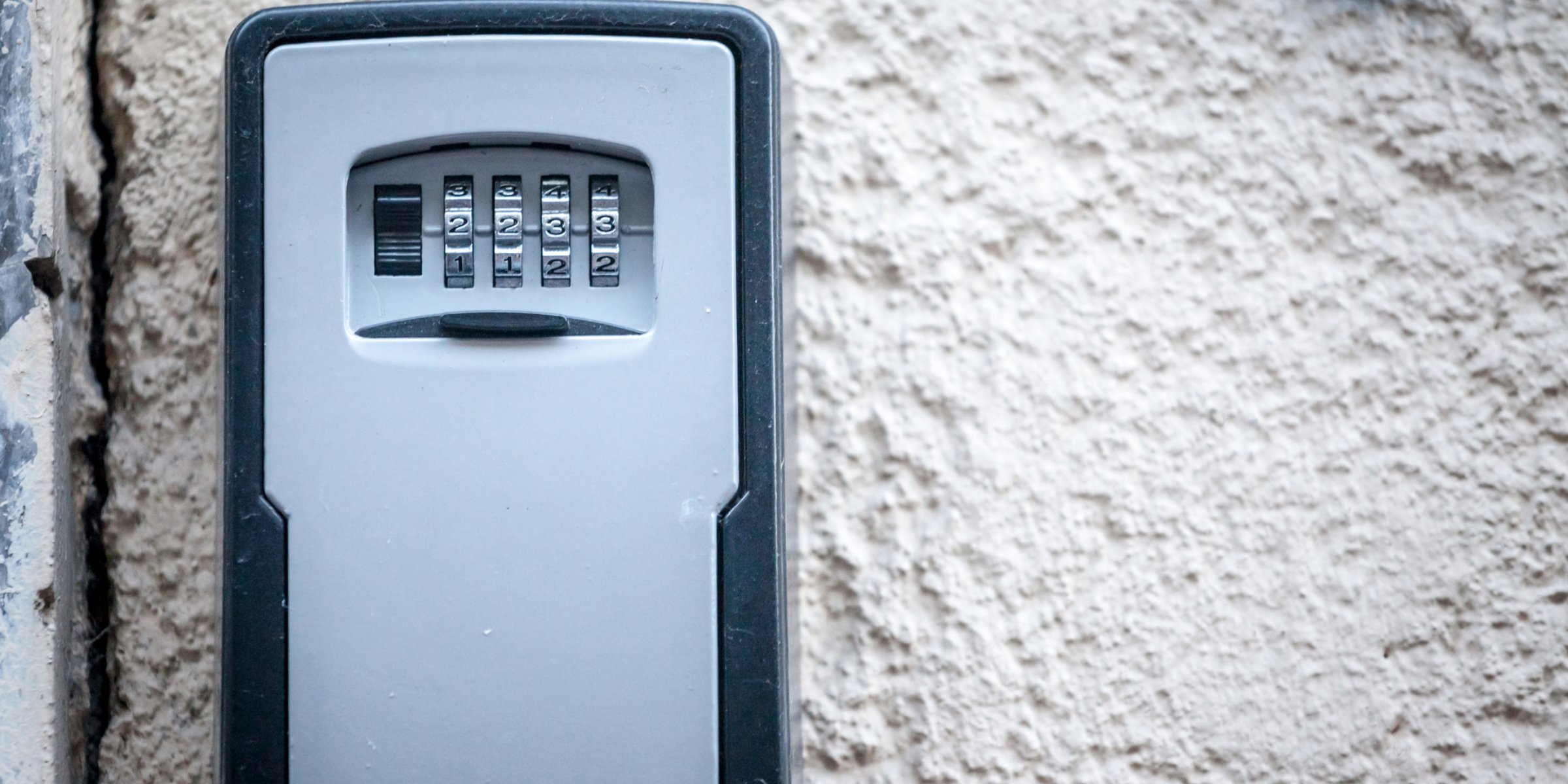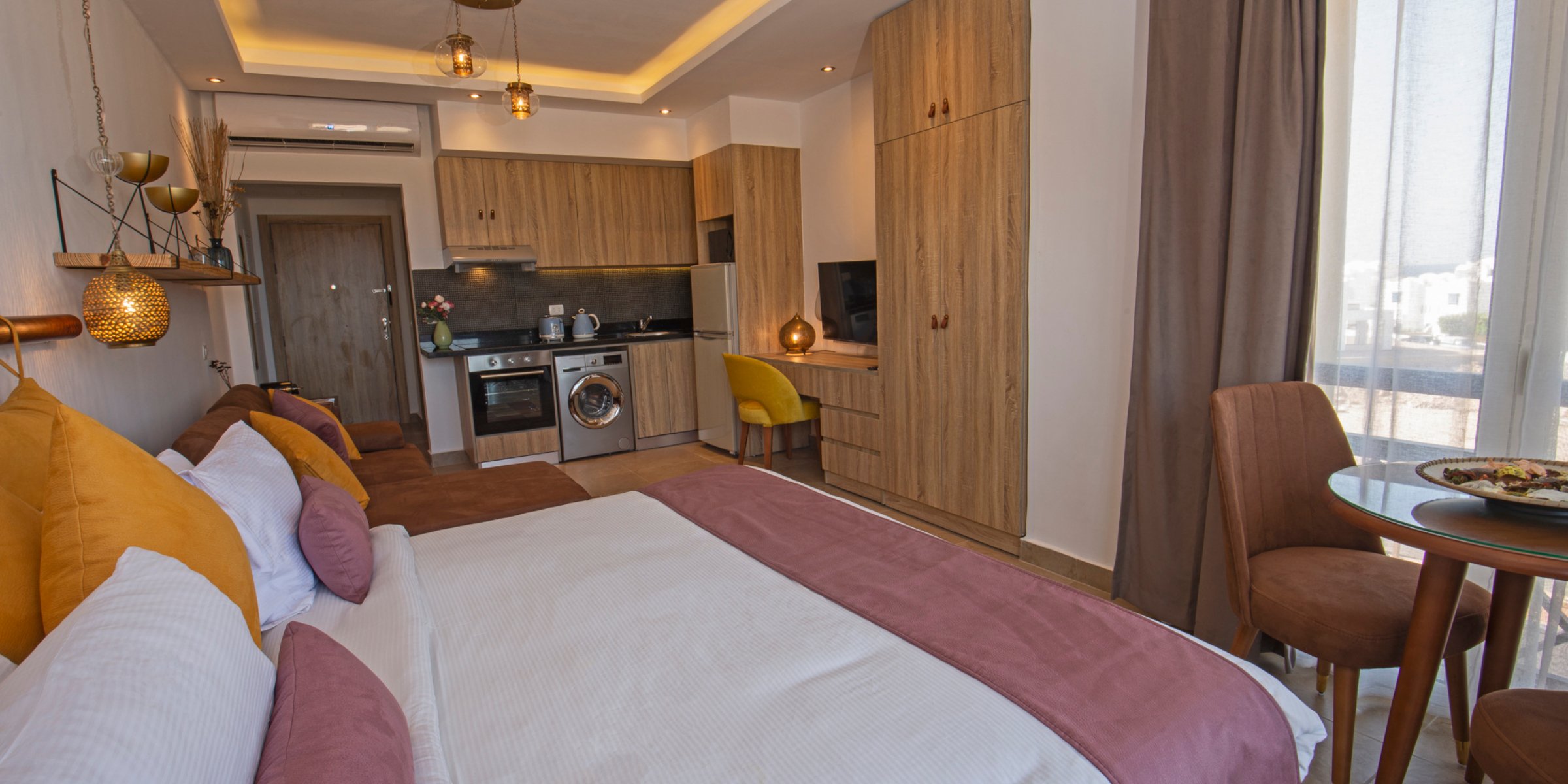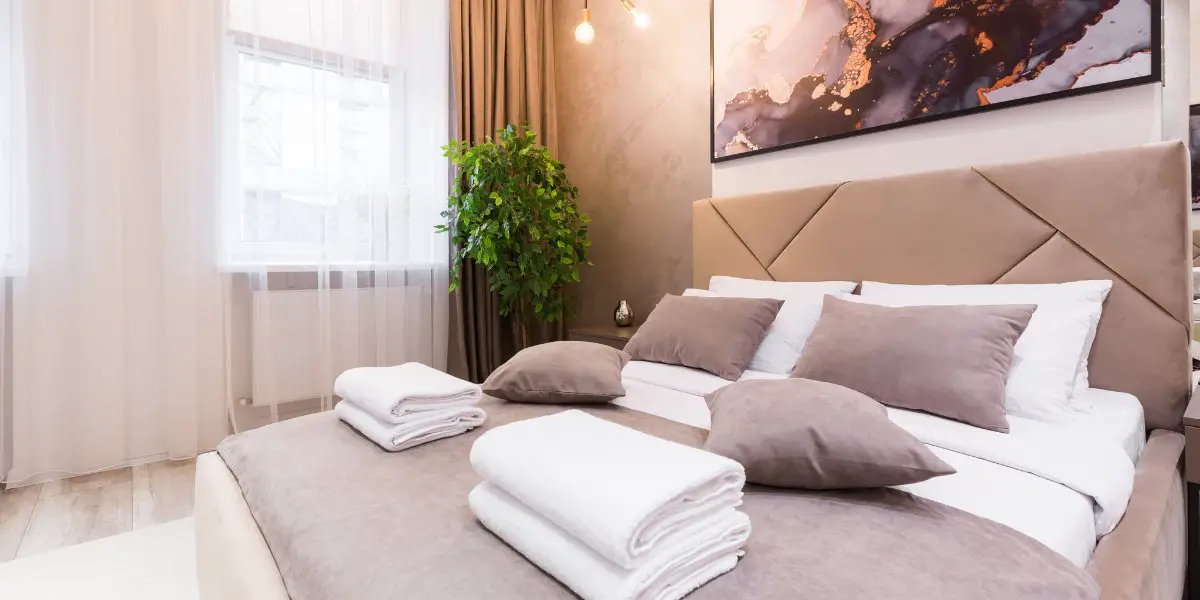Airbnb has become a popular option for property investors looking to make a profit from their investments.
By becoming an Airbnb host, investors can turn their properties into short-term rental units and generate additional income.
There are many benefits to hosting on Airbnb, such as the flexibility of setting your own rates and having access to a wide customer base.
With the right strategies, hosting on Airbnb can be an excellent way to maximize your property’s earning potential. Here is how to become a host on Airbnb.
Let’s take a deeper look into the steps you’ll need to take.
What is Airbnb?
Airbnb is an online platform that connects property owners with potential guests looking for short-term rental properties. The company was founded in 2008 and has since expanded to over 100,000 cities worldwide.
Airbnb values hosts and their abilities to offer exceptional guest experiences. As a potential host, there are basic requirements that must be met to become a successful host on Airbnb. This guide will provide tips and tricks on how to become an Airbnb host and make the most out of your rental property. From setting house rules to communicating with guests, we will cover everything you need to know to get started.
Preparing your rental property
As a property investor you’ll be use to ensuring your rental property is right for the market, and those skills will serve you well now.
It’s important to assess if your space is a good fit before listing it on the platform, after all, you want to provide a comfortable and enjoyable experience for your guests.
In this part of the process, we need to consider guest expectations and how to set clear expectations for them, which can lead to better reviews and repeat bookings.
Additionally, it’s essential to be aware of local laws and taxes that may apply to your rental, ensuring that you are compliant and operating within legal limits.
It’s good to know that Airbnb offers helpful resources and support to guide hosts through this assessment process, and there are 3rd party managed services, such as Houst, that will take care of a lot of the work for you.
Preparing your property is not that different to the preparation required for a traditional property rental.
Prepare for guests, not tennats
One of the first steps is getting your space in shape for guests. Adding personalized touches can help your guests feel more welcome in your home, while providing basic amenities can make their stay more comfortable. In this segment, we’ll walk through how to prepare your space for hosting guests. We’ll cover some simple yet impactful personal touches that you can add to enhance your guest’s experience, as well as the basic amenities that every host should provide to ensure their guests have an enjoyable stay.
Here are the steps to prepare your space for hosting guests:
- Clean and declutter your space to make it presentable for guests.
- Add personal touches such as fresh flowers, decorative pillows, and artwork to make your home feel welcoming to guests.
- Provide basic amenities such as clean linens, towels, toiletries, and a hair dryer to make your guests’ stay more comfortable.
- Create a guest guidebook that includes house rules, nearby amenities, and recommendations for local attractions and restaurants.
- Ensure safety and security by providing smoke detectors, fire extinguishers, and emergency contact information in case of any issues.
There are also some adjustments you might want to consider, for example fitting a key lockbox to the property, so guests can access it on arrival without having to pick up the keys.

Another element to keep in mind is that unlike a rental property you’ll need to cover the utilities and internet connection. WiFi is a must; make sure you’ve got it in place with clear instructions on how to connect before listing for rental.
As with a typical rental property, one of the key factors is location. Just because you already have rental properties doesn’t necessarily mean they’re in the right place for an Airbnb.
Adding personal touches
As a host on Airbnb, it is important to enhance the guest experience by adding personal touches to your space. These small details can make a big difference in how guests perceive your listing and can lead to positive reviews and repeat bookings.
To add personal touches, consider incorporating elements that reflect the local culture or unique characteristics of your space. This could be as simple as including local artwork or decorations, providing a book of local recommendations for guests, or offering a welcome basket with locally sourced snacks.
In addition to location-specific touches, consider adding amenities that cater to the needs and preferences of your target audience. For example, if you are hosting families with young children, provide toys and games for their entertainment. If you are catering to business travellers, consider offering office supplies or high-speed internet access.
Finally, don’t overlook the power of cleanliness and organization in creating a welcoming environment for guests. Make sure your space is sparkling clean and organized before each new guest arrives.

Adding personal touches can help set your listing apart from others on Airbnb. Take the time to think creatively about how you can enhance the overall guest experience through thoughtful design and intentional hospitality.
One host found success by adding personal touches inspired by her own hobbies. As an avid gardener, she decorated her space with floral arrangements and offered fresh flowers for guests upon arrival. This attention to detail led to rave reviews and repeat bookings from guests who appreciated the extra effort put into making their stay special.
Providing basic amenities
Ensuring basic amenities for guests is a crucial factor in providing quality experiences. Guests appreciate staying at Airbnb homes that offer essential and comfortable items such as clean bedding, towels, and toiletries.
Providing amenities such as coffee, tea, and other food supplies go a long way in earning good ratings and reviews.
Additionally, having easy access to electronic devices like Wi-Fi and charging docks are convenient factors that add value to the guest’s stay.
It is important to note that providing the right products and ensuring their quality are important aspects of enhancing guest experience.
Using good quality materials for bedding and towels along with renewing them regularly helps maintain hygiene standards. Transparent communication with guests regarding what amenities will be provided goes a long way in setting up clear expectations. By keeping these details communicated, negative feedback can be avoided.
A useful consideration to keep in mind while providing basic amenities is that it should not imply overloading additional costs on the hosts themselves. Having reasonable prices for these add-ons can balance the overall cost structure for both hosts and guests.
Pro Tip: While providing an ample amount of basic amenities is always appreciated, offering unique ones based on the location or property style can create an exceptional guest experience worth sharing in reviews or feedback sections.
Time to shine, showcase your space on Airbnb and let the bookings roll in!
Choosing a Location
Choosing the right location for your Airbnb rental property can make all the difference when it comes to attracting potential guests and securing bookings. After all, if your unit is situated in an unattractive or inconvenient location, it will be much harder to entice guests to stay there. That’s why it’s important to carefully consider different factors that can influence the appeal of your rental property.
The location of your rental property can have a significant impact on the type of guests it will attract, as different renters are drawn to different locations for various reasons.
For example, if your unit is located near a bustling downtown area or business center, it may appeal to corporate travellers who are in town for meetings or conferences.
On the other hand, if your rental property is situated in a more residential area close to popular tourist attractions, it may be more attractive to families or international travellers.
When selecting a location for your Airbnb unit, there are a number of factors to consider, such as proximity to popular tourist attractions, event venues, or local businesses.

You’ll also want to research comparable accommodations in the area in order to position your unit’s listing strategically to appeal to potential guests. Factors such as nightly rate, availability, and amenities can all play a role in determining how well your rental unit does in a competitive market.
Once you’ve chosen a location for your rental property, it’s important to share valuable insights with your future guests about the area’s finest spots. This can include recommendations for local restaurants, parks, or other attractions that guests may not be familiar with. Be sure to communicate these best practices through your Airbnb listing or by leaving a guidebook for guests to use during their stay.
Overall, selecting the right location for your Airbnb rental property is crucial for attracting potential guests and securing bookings. Conducting thorough market research on comparable accommodations in the area, considering the types of guests you hope to attract, and sharing insightful tips with your guests can all help to make your rental property a popular choice among travelers.
Setting House Rules
It’s important to remember that while guests are staying in your rental property, they’re usually looking for a home away from home experience, but it is still your property. Therefore, it’s important to set clear and simple rules to make sure that everyone understands what is and isn’t allowed, and to hold guests accountable if they break any of the rules.
Airbnb has pre-set rules that can be applied with one click, but there’s also space for hosts to add more specific rules as required that may work best for their properties. Adding specific rules can add clarity to your listing and can help avoid potential issues that may arise later. For instance, if you have a strict no smoking policy or you don’t allow pets, it’s critical to include these rules in your listing.
When setting house rules, hosts must consider a range of factors, including the characteristics of the local property, the kinds of guests they expect to stay, and any additional laws that apply to the property. For example, some possible house rules to include regarding smoking and pet policies, as well as specific curfews, are only a few things that should be carefully considered.
It’s also essential to strike the right balance when setting house rules. Rules should be clear without being too overbearing. Hosts need to maintain a safe, comfortable, and respectful environment for both the guests and themselves. There must be no compromise on the safety or security of the property, but hosts should also strive to ensure that their guests have an enjoyable and memorable stay.
In conclusion, setting clear and simple house rules is a vital element of any Airbnb listing. It helps hosts to keep guests accountable, avoid any conflicts, and creates a comfortable and safe environment for everyone. Hosts should also strive to strike the right balance in setting these rules, ensuring a good guest experience while safeguarding the property’s security and their own well-being. So, be specific, do your research, and don’t be afraid to set reasonable expectations about your guests’ behavior while in your rental property.
Professional Photography
When it comes to property, be it selling or renting, high-quality photos are critical. In fact, photos are often the first impression guests have of your property, and they can make or break a booking. That’s why it’s essential to invest time and effort into producing visually stunning photos with Airbnb’s recommendations.
Airbnb recommends using natural lighting, which can accentuate your property’s features and give your photos a bright and welcoming atmosphere.
Landscape format is also recommended as it provides a more comprehensive view of your listing’s rooms, making them appear larger and more spacious.

Aside from lighting and format, the cleanliness and decoration of your rooms can give renters a better idea of where they will be staying and increase their interest in booking.
Fortunately, hosts have options for taking photos on their own or hiring a professional photographer. For DIY photos, it’s worth investing in a good camera or smartphone with a quality lens and setting aside ample time to take photos of your property’s best features. Additionally, arranging rooms with attractive accents such as plants, artwork, or furniture can help enhance the photo’s appeal.
If you’re not confident in your photography skills, you could also consider hiring a professional photographer. Professional photographers have experience in capturing the best angles and lighting, and they know how to enhance the appeal of your home’s features. Additionally, they can edit photos to ensure they look their best. However, it’s important to do your research and select a photographer who has experience and affordable pricing.
Airbnb also offers an option to request a professional photographer for your listing. This service is available in select cities and includes a photoshoot with a professional photographer who will provide up to 14 photos of your listing for an additional cost.
Overall, investing in high-quality photos is a crucial step in becoming a successful Airbnb host. By following Airbnb’s recommendations for natural lighting and landscape format and taking the time to decorate and clean each room, hosts can increase their potential to attract bookings and provide their guests with a pleasant experience.
Pricing Strategy
Developing a successful pricing strategy is crucial for maximizing the earning potential of your Airbnb listing. To start, conduct thorough market research to understand the local demand for short-term rentals.
Utilize tools like AirDNA, which provides data on the average occupancy rates, daily rates and percent cancellation rate in your area. Analysing the current rates of the competition will give you an idea of what price point to set for your listing.
Airbnb also offers a helpful feature called Smart Pricing, which uses an algorithm to automatically adjust your nightly rate based on demand, seasonality, and other factors. This can be a valuable resource for hosts who want to take a more hands-off approach to pricing.
In addition to setting a competitive nightly rate, consider offering discounts for recurring guests or weekly or monthly stays. These discounts can be a great way to incentivize guests to book for longer periods, increasing your occupancy rate and earning potential. Additionally, offering promotional deals for your first few bookings can be a great way to build up your reviews and establish a positive reputation.
Overall, developing a successful pricing strategy requires a combination of industry knowledge, market research, and experimentation. By utilizing resources like AirDNA and Smart Pricing, and offering competitive rates and discounts, you can maximize your earning potential and establish yourself as a successful Airbnb host.
Guest expectations and setting clear expectations
Providing exceptional an experience starts with understanding guest expectations. As a host, you must set clear expectations to ensure a good fit of the space with your guests’ needs. This involves sharing detailed descriptions in the listing, responding promptly to guests’ inquiries and providing all relevant information which can affect their stay.
In addition to that, it is essential to set clear expectations about the house rules and communicate them effectively. Inform your guests about what’s expected of them during their stay at your property and make sure they understand your policies on check-in and check-out times.
Moreover, you need to be aware of local laws and taxes which are relevant to renting out properties, as these may influence what you are legally allowed to do. Thus, having crystal-clear communication with guests contributes to better reviews and an overall satisfied clientele.
A fact from Airbnb states that 87% of hosts report great satisfaction from hosting on Airbnb due to their excellent interaction with valuable guests who appreciate top-notch service quality.
Local laws and taxes
When becoming a host on Airbnb, it is crucial to gather knowledge about the local laws and taxes applicable in your area. It’s important to note that hosts are responsible for paying taxes on their earnings as per local regulations. Additionally, some cities have laws and regulations that set specific requirements for short-term rentals. Be sure to familiarize yourself with these rules before listing your space on Airbnb.
In order to avoid any legal issues or penalties related to non-compliance with the local laws and taxes, it is highly recommended that you consult a lawyer or tax advisor who knows the laws and regulations specific to your location. This will help ensure that you meet all legislative requirements.
Remember that complying with local laws and taxes carry unique penalties peculiar to different locations. In severe cases, hosts may be subject to fines from local authorities or even face legal action if they fail to comply with relevant tax laws and regulations in their locality.
Ultimately, keeping yourself informed about the legal obligations of hosting through careful research positions you ahead in providing a good experience for both guests and regulators while reducing potential liabilities from non-compliance.
List your space
Listing your space on Airbnb is a stepping stone towards starting your journey as an Airbnb host. You might feel overwhelmed, however, the process is simple, and there are several benefits of earning some extra income by renting out your space.
In this segment, I’ll explain how to list your space on Airbnb, covering the benefits of the free listing option and the Airbnb charges. Then, I’ll walk you through each of the ten easy steps of setting up your listing to ensure that your listing attracts guests in no time!
Free listing and Airbnb charges
To list your property on Airbnb, there are free listing options available, along with charges that come with it.
- Listing for Free: Airbnb offers a simple and free way to list your space on their platform, where you only pay a commission fee when your property is booked by travellers. This is a great option for those who want to test the waters of holiday rental.
- Airbnb Charges: The commission fee charged by Airbnb is typically around 3% of the total reservation cost which covers payment processing fees. Additional charges such as cleaning fees or taxes may be added by the host.
- Cancellation Policy: Airbnb also has a set of cancellation policies hosts can choose from that determine the amount of refund guests receive if they cancel their reservation. Hosts can opt for flexible or strict cancellation policies based on their needs.
It’s important to keep in mind that while listing your property on Airbnb is free, there are fees associated with hosting and accepting bookings on their platform. These charges vary depending on the type and location of the property.
For example, guests travelling to certain regions may have local taxes applied to their booking fee, which will reflect in what you will receive from hosting. However, these charges allow hosts access to an extensive community of travellers worldwide looking for unique experiences.
Once hosts have listed their space and have a clear understanding of how much they’ll be earning while considering prices that cover extra charges like cleaning fees and taxes mentioned earlier. They can decide how much they would like to sell for per night or week without upcharges.
Overall, listing your property with Airbnb comes with both nominal costs and additional commissions that enable hosts’ access to an already established global audience all while providing quality assurance through a trusted intermediary platform.
Setting up the listing in 10 easy steps
Setting up the listing of your space on Airbnb is a simple process that anyone can follow. It involves ten easy steps that include:
- Setting up your calendar
- Deciding on house rules
- Adding personal touches to your space
- Providing basic amenities
- Pricing your space competitively
- Choose a catchy title for your listing.
- Be descriptive about the location, price, and amenities you offer.
- Pictures are worth a thousand words – upload plenty of high-quality images.
- Type out detailed descriptions and instructions regarding entry/exit times and anything else guests might need to know.
- And finally change the status of your room or home to “Listing”.
Hosting on Airbnb is like being a ringmaster – you set the rules and keep the show running smoothly.
Decide how you’ll host
One of the first decisions was deciding how exactly I wanted to host my guests. In this part of the process, two important factors came to light:
- Understanding the calendar and booking settings
- Setting clear house rules for guests to follow
Let’s dive deeper into these topics, as they can greatly impact the experience for both the guest and the host.
According to Airbnb’s reference data, hosts who pay close attention to the nuances of their calendar and booking settings, and who have clear and concise house rules, tend to have the most successful and positive experiences.
Calendar and booking settings
To manage reservations for guests, Airbnb provides a set of tools known as “Calendar and Booking Settings.” These tools enable the host to monitor, schedule, and keep track of reservations made by their guests.
The table below outlines some features that can be managed through Calendar and Booking Settings:
| Features | Description |
|---|---|
| Availability | Host can mark selected dates available or blocked for bookings. |
| Pricing Adjustments | Host can apply discounts to longer stays or add extra charges for cleaning fees. |
| Instant Book | It allows guests to book listings without needing prior approval from hosts. |
| Reservation Confirmation Timeframe | Hosts set check-in and checkout times according to guest requirements. |
Calendar and Booking Settings help in setting up a clear schedule based on the availability of your space, which ensures efficient management of guest requests. It’s important to remember that once you have updated the availability settings on the booking calendar, it will reflect on all other platforms worldwide instantly.
Hosting on Airbnb requires consistent attention towards keeping guests happy while following local regulations and maintaining excellent communication with them.
As a result, you may want to ensure that your calendar is updated frequently so that both parties are aware of any amendments made in real-time.
Think of your own experience as a guest anywhere, how much better do you feel when your messages are responded to as soon as possible? Utilizing the booking settings smartly is essential for successful hosting on Airbnb.
House rules
I’ve touched on this already, but it’s an important point I don’t want you to overlook:Creating well-defined ‘guidelines‘ or ‘rules‘ for guests to follow during their stay is essential in ensuring a positive experience for both hosts and guests. Clearly communicating the ‘house rules’ before booking can minimize misunderstandings, violations, and conflicts.
In addition to basic guidelines such as no smoking or pets, hosts should also set expectations for things like check-in and check-out times, quiet hours, and cleanliness standards. Policies on use of space, security measures for keys and valuables, and consequences of breaking rules should also be included.
Remember to keep it simple and direct while also providing enough information without overwhelming potential guests. Establishing house rules up front can help avoid issues during a stay that might lead to negative reviews or disputes that could impact future bookings.
Pro Tip: Consider including the house rules in a guest welcome packet or posting them in a visible location in the rental space for easy reference during their stay.
Pricing strategy
One challenging facing any new business is how to set a competitive price. You want to ensure that potential guests felt like they were getting a good deal while still earning enough money to make it worth doing.
To achieve maximum revenue, hosts need to have a proper pricing strategy to attract guests. Several factors can affect pricing, including location, demand and supply, seasonality and events. These variables are critical when determining desired profit margins. Hosts should also examine competitor listings to determine rates, along with accommodation facilities provided by them.
It is beneficial for hosts to utilize Airbnb’s dynamic pricing feature, which automatically adjusts room rates depending on the demand within the marketplace. Dynamic pricing increases prices during high-demand periods and decreases them when there is low activity in the market.
Unique amenities that appeal to specific types of guests could result in increased listing prices. Offering items such as a hot tub, barbecue grill or pool can increase the value of a listing and may be factored into the overall rate.

Hosts must consider flexibility regarding cancellation policies because this could affect pricing for travelers who seek accommodations’ strict yet predictable booking options.
Historical data helps determine seasonal price fluctuations like bustling tourist moments throughout summer months.
Payout methods
When hosting on Airbnb, there are various payout methods available to choose from when it comes to receiving payments for your bookings. Here are some of the ways you can receive your earnings as a host:
- Direct deposit: This is the most popular method among hosts, where Airbnb automatically transfers your earnings into your bank account after each booking.
- PayPal: If you prefer to receive payments via PayPal, you can link your Airbnb account and receive payouts that way.
- International wire transfer: Hosts can also use this method for receiving payouts outside of their country of residence.
- Debit card: Airbnb offers a feature called the Payoneer Prepaid Mastercard, which functions like a debit card and allows hosts to immediately access their earnings.
- Business travel ready program: If you opt into this program, guests booking your property on business trips will have different payment methods available, such as invoicing in their company’s name or paying with a corporate credit card. You’ll still receive the payout in the same way as other bookings.
- Referral rewards: Finally, if you refer someone to become an Airbnb host themselves and they host their first guest successfully, both of you will receive referral rewards.
It’s essential to remember that Airbnb charges a 3% transaction fee for every completed booking and applies local taxes in certain areas. As per its policies, payout requests are generally processed within 24 hours but may take longer depending on the chosen method.
Pro Tip – Consider opting for direct deposit (if available in your region) since it’s typically faster and more convenient than other payment methods. Also, know that different payout methods may impact how quickly you can access your money – so be sure to choose wisely!
Get the Airbnb support you need and join a community of hosts who won’t judge you for hiding the creepy clown dolls in your small-space rental.
Support and resources available to hosts
As someone who’s interested in becoming an Airbnb host, it’s important to know where to get the necessary support and resources. Whether you’re an experienced host or just starting out, Airbnb offers a variety of resources that can help you navigate the platform with ease.
One such resource is Airbnb’s robust support system, which has everything from a 24/7 support team to online resources and guides.
But it’s not just Airbnb’s official support that can be helpful, the Airbnb community is also an excellent resource for hosts, allowing you to connect with like-minded individuals and share experiences.
Airbnb’s support for hosts
Airbnb provides extensive support for hosts, ranging from listing preparation to resolving disputes. Hosts can contact the customer support team through social media, email, or phone 24/7 to receive assistance with any concerns or questions. Additionally, Airbnb provides a host community forum where hosts can share experiences and advice on how to improve their listings and guest experiences.
Supplementing this, Airbnb offers an array of resources including safety information, marketing tips and legal guidelines that enable hosts with a better understanding of the industry and its requirements.
It is evident that with these vast support networks behind you as a host, becoming an Airbnb member is not only easy but comes with peace of mind knowing that you can quickly obtain assistance when in need. Join the Airbnb community and share experiences, because misery loves company, and so does success.
The Airbnb community and sharing experiences
Airbnb’s community offers a platform where hosts can reunite and share their experiences. This dynamic community allows for valuable communication, knowledge sharing, and support between hosts from all around the globe.
Members of the community can share information on local regulations, hospitality tips, as well as experiences that facilitate actionable insights that help to shape best practices in Airbnb hosting.
Through this exchange of ideas and stories, hosts learn from one another’s successes and challenge by sharing input on topics like offering great amenities or dealing with difficult guests. The Airbnb hosts’ community is unmatched in terms of fellowship and camaraderie among members who are passionate about giving travellers memorable hospitality experiences.
Hosts benefit greatly from being part of the Airbnb community; it bolsters confidence since they receive helpful feedback, advice, and resources in real-time. They can also engage in lively dialogue with other experienced hosts regarding concerns facing them as they strive to be successful in their home-sharing business.
By fostering meaningful connections between hosts globally, the Airbnb host community enriches its members’ lives beyond just financial benefits while promoting inclusivity, diversity, and mutual support.
Final Thoughts
As you have seen, becoming an Airbnb host requires dedication, planning, and careful execution. From preparing your home to marketing your listing, the process can be complex. However, with the right guidance, knowledge, and attitude, you can achieve success as an Airbnb host.
It is essential to set realistic goals, understand your target market, and make an effort to create a unique experience for your guests.
If this sounds like a lot of work there are management companies that will do a lot of the ongoing work for you.
Are you ready to take the first step and become an Airbnb host? Don’t let the fear of missing out stop you from embarking on this exciting journey. With the right mindset and resources, you can turn your property into a profitable business and create unforgettable memories for your guests.
FAQs about How To Become A Host On Airbnb
What are the basic requirements for becoming an Airbnb host?
There are no specific requirements for becoming an Airbnb host, but you do need to be at least 18 years of age and own or lease the property you wish to list. Additionally, you must be able to meet the needs and expectations of potential guests who book your space.
How much should I charge as a nightly rate?
The amount you charge for your space is entirely up to you. It is recommended that you research what other hosts in your area are charging and consider the amenities you offer and the time of year when setting your price. You can also adjust your rate seasonally to reflect high and low demand periods.
What is Airbnb’s service fee for hosts?
Airbnb charges a service fee to hosts that is typically 3% of the booking subtotal. This fee covers the cost of running Airbnb, including 24/7 customer support, host protection insurance, and more.
What are some tips for creating a compelling listing?
When creating your listing, be sure to include detailed descriptions of your space’s features and amenities and highlight any unique or personal touches.
Take clear and attractive photos that showcase your space’s best features, and consider hiring a professional photographer if needed.
Offer basic amenities such as toiletries and clean linens, and set clear expectations for guests by outlining your house rules and expectations.
Do I need to clean the space between guests?
Yes, as a host, it is your responsibility to clean and maintain the space between guests. You can either do this yourself or hire a professional cleaning service.
It is recommended that you provide cleaning supplies for guests to use during their stay and set clear expectations for how the space should be left at check-out.
Can I make extra money as an Airbnb host if I already have a full-time job?
Yes, many Airbnb hosts continue to work a full-time job while hosting guests for extra income. However, hosting does require a significant investment in time and effort, especially in the beginning stages.
It is important to be responsive to guests and maintain the space to a high standard, but the potential for passive income can be worth the investment.
- Rent-to-Rent Schemes: Hidden Dangers Lurk - July 6, 2024
- How to Sell Your House Fast in Kent - July 5, 2024
- 7 Tips to Sell Your House Fast - July 4, 2024



